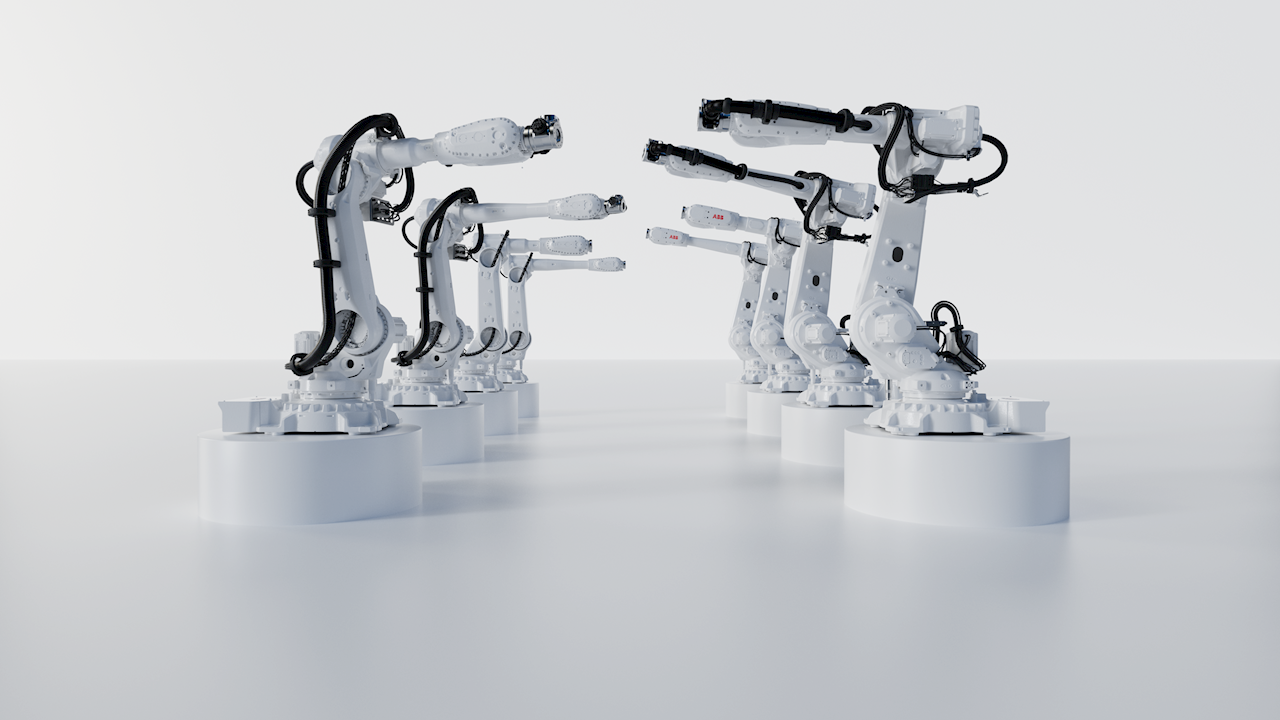New Large ABB Robots Increase Speed and Flexibility for Material Handling on EV Battery Production

Bengaluru, India – ABB is expanding its portfolio of large robots for complex manufacturing applications with the addition of two new robot families. The company’s IRB 5710 and 5720 robots deliver increased productivity and enhanced performance with higher uptime for applications such as electric vehicle (EV) manufacture, foundry, forging, rubber, plastics, and metal fabrication, thanks to enhanced speed, accuracy, flexibility, and a more robust design that includes integrated process cabling.
The IRB 5710 and IRB 5720 are available in eight variations, with payloads ranging from 70-180kg and reaches ranging from 2.3-3.0m. The two robot families work well together for a variety of production tasks including material handling, machine tending, and assembly, as well as specific EV manufacturing processes such as battery module picking and placing, high-precision assembly, and parts handling. The advantages of the robots make them perfect for use in plastic molding, metal casting, cleaning, and spraying applications.
The company’s new OmniCoreTM controller V250XT, the latest addition to the OmniCore controller family, powers both robot families. The OmniCore V250XT controller, featuring ABB’s TrueMove and QuickMove motion control technologies, enables the IRB 5710 and IRB 5720 robots to offer class-leading speed, increasing production capacity while decreasing manufacturing times. The IRB 5710 and IRB 5720 are more accurate than other robots in their classes, with outstanding position repeatability (0.04-0.05mm), path repeatability (0.1-0.14mm), and path accuracy (1-1.2 mm), enabling them to deliver the highest levels of manufacturing quality.
The company’s LeanID Integrated DressPack provides additional protection against damage and cable wear and tear by allowing process cables to be routed inside the robot’s upper arm and around the wrist rather than externally. This avoids swinging cables (protecting against heat and collisions), which are a typical cause of robot maintenance issues, potentially decreasing downtime and maintenance costs and increasing the service life of the robots by many years. In ABB’s RobotStudio® offline programming software, LeanID also makes it easier to program and simulate with predictable cable movements.
For optimal production design flexibility, both robot ranges have several mounting choices, including floor, angled, inverted, and semi-shelf. More process applications, such as welding, cutting, and dispensing, will be available in 2023.
Joerg Reger, Managing Director, Business Line Automotive Robotic & Discrete Automation, explained, “These new robots accelerate ABB’s continuing expansion into the rapidly growing EV market, meeting customer demand for robust units with the speed, path accuracy, and dexterity to handle complex EV battery assembly duties. The switch from internal combustion engine (ICE) vehicles to EVs especially is driving increased demand for fast, adaptable production lines. EV designs can often be highly complex, and components such as batteries and semiconductor modules can be very heavy or extremely fragile. These demands call for solutions that can offer maximum precision and repeatability to avoid errors in production.”
Image Source: ABB Ltd



 Facebook
Facebook.png) Twitter
Twitter Linkedin
Linkedin Subscribe
Subscribe